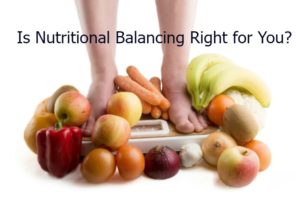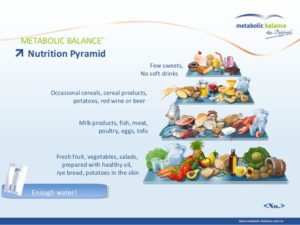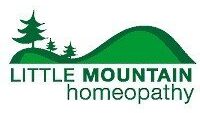
I no longer recommend fasting, detox or cleansing diets for any prolonged period of time to my clients. Though these types of diets have been healthy and effective for people in the past, in modern times people are too nutritionally depleted to benefit from cleansing diets and fasting, due to the poor nutrient density of our modern foods.
What people really need is to balance out their body chemistry by eating more nutrient dense foods. There is not just one way to do this, but these are the 3 resources I recommend:
Metabolic Balance®: A whole foods-only diet plan that is individualized to each person, based on a person’s unique blood chemistry. A regular medical blood test is required, done through LifeLabs here in Canada. 36 different blood values are measured, including heart function, kidney function, liver function, and mineral levels. According to the results of the blood test, certain foods are “prescribed” by the metabolic balance team in order to balance out the deficiencies that are found in the blood test. Many people use this plan very effectively as a way to lose weight, because once your body’s blood chemistry has been balanced by eating the right foods, the metabolism is also balanced. However, a wide variety of problems can be helped by eating a whole foods diet as prescribed by metabolic balance, such as allergies, chronic inflammation, arthritis, diabetes and heart problems. I am a huge fan of this program for many reasons. It teaches people good eating habits such as no snacking, how much water one should be drinking (most people are dehydrated), and each meal recommendation contains a balance of carbs and proteins for optimum nutrition. It’s a sensible way of eating and the metabolic balance nutrition plan can be used for life. (This program is no longer offered by Little Mountain Homeopathy).
Hair Mineral Testing: This is another way of determining one’s mineral deficiencies in order to balance them out nutritionally and (optionally) with supplements. Analytical Research Labs in Phoenix, Arizona is the lab I use for hair mineral testing. The test will determine many things, such as nutritional deficiencies and the presence of heavy metals in the body. It will also determine whether one is a slow or fast oxidizer (whether one metabolizes food slowly or quickly). A suitable diet plan will then be recommended, as the recommendations for a slow oxidizer will be different than those for a slow oxidizer.
The Weston A Price Foundation: This non-profit organization has an informational website dedicated to informing the public about nutrient-dense foods, including grass-fed meat and raw milk products. Their website is a goldmine of information and does contain some very useful dietary advice. I am currently the local chapter leader for this organization.

I advise clients to eat in a balanced way, emphasizing vegetables for optimal nutrition balanced out with proteins and a moderate amount of fruits. Grains (if tolerated) should be eaten sparingly, and should also be traditionally prepared. Local organic foods should be eaten as much as possible. Sugar and packaged foods should be very limited and only eaten occasionally if at all. Vegan diets are not recommended because at least some amount of animal protein should be consumed in order for one to be nutritionally balanced. Also, an adequate intake of healthy fats is important but don’t overdo it.
I do believe that when the body has adequate minerals, supplied by adequate nutrition, there is no need to detox, as the body will then be able to detox out heavy metals and other toxins on its own through the liver and kidneys. However, I do offer the option of a homeopathic detox protocol to those clients who would like to speed the detox process.
References
http://drlwilson.com/Articles/fast%20diet.htm
http://drlwilson.com/ARTICLES/FASTING.htm
http://www.drlwilson.com/articles/slow%20diet.htm
http://www.metabolic-balance.com/ca/HOME.aspx
http://www.westonaprice.org/
